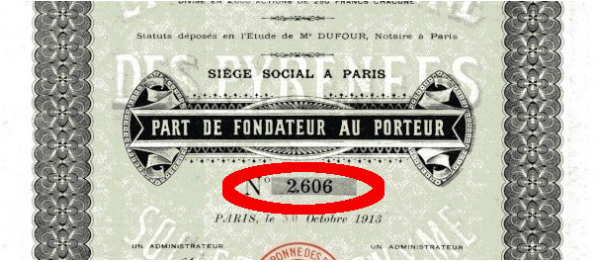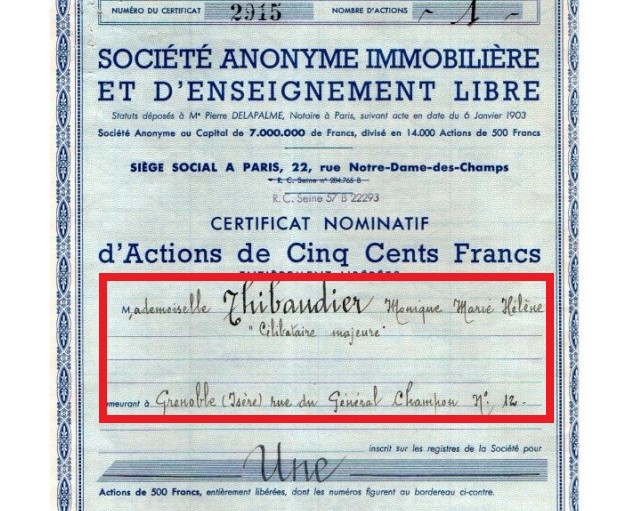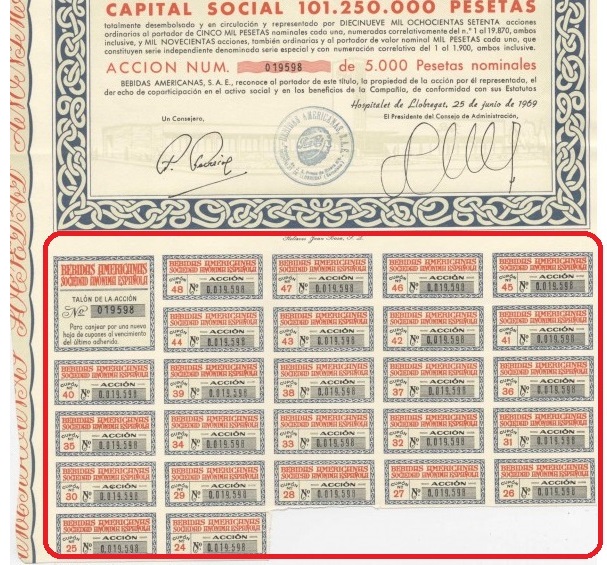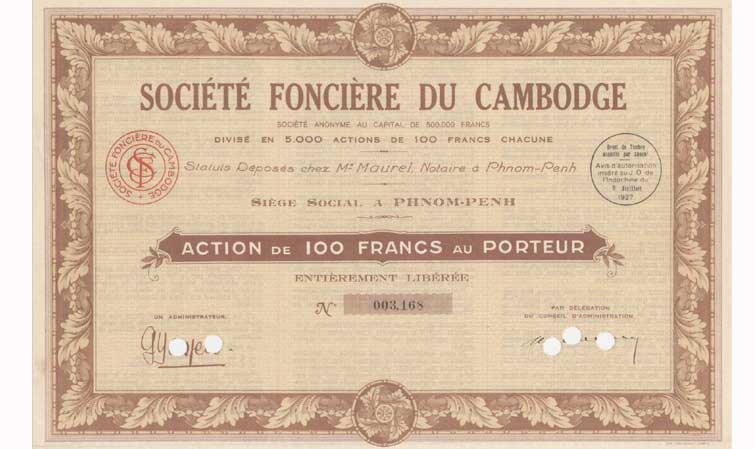How to authenticate a certificate?

Documents displayed are all original collectibles. How to be sure of the authenticity of a bond?
The serial number
Shares and bonds have a serial number, except in the case of Specimen (number 0).
A specimen can be either a printing proof or a document that was not issued (no issuing date, no signature).
The serial number does not affect the collectible value in any way, except number 1, or sometimes the first issues which were often distributed to the first founding shareholders of the company.
The paper
Thanks to watermarks, printers already had a hundred years ago papers resistant to the ravages of time and forgers. Fraud was thus generally ruled out. But we still happened to encounter counterfeits.
Thanks to his experience, an expert will immediately recognize by touch the particular paper on which the stock securities have been printed.
In the 19th and 20th centuries, printing was done on papers of various characteristics and most of the time in several colors (yellow, brown, green, blue, red-pink), four-color process however remaining a rare exception.
The date and place of issue
The place (the city most of the time) and the year of issue are usually indicated on the titles. Most of the certificates sold on this site date from the years 1900 to 1940.
Signatures
A stock certificate bears generally the signatures of company directors or representatives of loan issuers. The signatures are often original but sometimes facsimile (reproduction).
Some signatures are searched by collectors (Rothschild, Citroën, De Lesseps...).

Signature of Nathan de Rothschild on Russian 1822 Loan
A certificate "to bearer" or "nominative certificate"
The certificates are generally said to be "bearer".
There are also nominative certificates, that is to say denominated in the name of an individual or a company.
The name of the beneficiary of the certificate does not affect its collection value, except in the case of a famous name.
Coupons

Bonds may or may not have coupons located at the bottom or sometimes on the side of the document. The coupons correspond to dividends or interest paid by the company or by the State.
The presence of numerous coupons may mean that the company has declared bankruptcy and has not distributed dividends, that the State has not reedeemed all or part of the investors.
The number of coupons is generally not a determining criterion of the collection value except for state bonds.
Cancellation marks
 Bonds can be cancelled, in particular concerning state loans.
Bonds can be cancelled, in particular concerning state loans.
The cancellation is marked by a stamp or perforations called "cancellation holes".
For some state bonds, uncancel means that the bond could still have a financial value if the country would decided to pay interests or capital (very unlikely).
The condition of the bonds
Shares and bonds are documents that are 100 years old, and in a variable condition.
The abbreviations used to describe the state of conservation of the certificates are usually:
- EF (Extremely Fine): Superb condition. The bonds can however be presented folded generally at the coupon level.
- EF/VF: Very good condition with slight stains, small tears or marked folds
- VF (Very Fine): Good condition with slight stains, marked folds and tears sometimes repaired
- F/VF: Good condition with very marked folds or medium tears, sometimes repaired
- F (Fine): Good condition despite larger stains, holes or tears repaired.
Proove the authenticity with the Numistoria Pass
If you want to keep a proof of authenticity, as we have been the leading French scripophily specialist for over 40 years, our Expert is able to provide Numistoria Certificate of Authentication (order it online).
➡️ You can then add the Numistoria Pass by searching for the reference 22843 and adding it to your cart.

Comments
Leave your comment